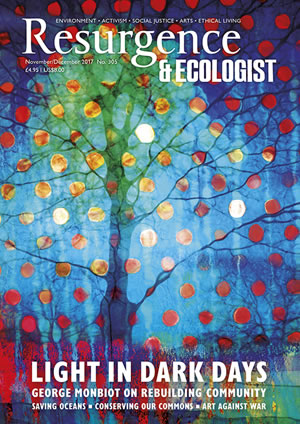For many people, the election of Donald Trump as president of the United States was a freak aberration in Western politics, almost impossible to comprehend. For Naomi Klein, it was the logical culmination of the last few decades of neoliberalism; the embodiment of everything from reality TV to ruthless capitalism. It was a shock for her too, but not a surprise. And so in No Is Not Enough, Klein makes sense of how this all unfolded, while sketching out a meaningful resistance to the forces that propelled Trump to power.
This book completes Klein’s transformation from journalist to full-blown activist. Her previous works were loaded with footnotes and fuelled by years of research. Here she offers a manual for “defeating the new shock politics” within a few months of Trump taking power. It’s fast and chatty, but it retains her ferocious analysis, weaving together the three themes of her major works: corporate branding (No Logo, 1999), disaster capitalism (The Shock Doctrine, 2007), and climate change denial (This Changes Everything, 2014). The result offers an accessible overview of Klein’s work, while mapping it onto current events.
The connections between Klein’s previous books and Trump are striking. Trump rose to prominence through similar corporate branding exercises to those utilised by such companies as Apple and Nike in the 1990s. He has surrounded himself with people who pioneered disaster capitalism, profiteering from free market dogma in the wake of catastrophes like Hurricane Katrina. And when it comes to climate change denial, just try searching for ‘climate change’ on the White House website these days. Undoubtedly, Klein is on a home turf of sorts.
In charting her response to Trump, Klein is quick to separate symptoms from their cause. And we should make no mistake: Trump is a product of a much wider set of issues. Sure, it’s natural to be revolted by Trump’s personal behaviour, and I’ll certainly knock back a glass or two if and when we get to enjoy an impeachment. But Klein makes the point that focusing too squarely on Trump as an individual does nothing to alter the conditions of late capitalism that gave rise to him: the far deeper roots of inequality and hate.
This is a much bigger job of work. Naturally, it helps explain why a lot of people end up focusing on the narrower goal of resisting the president. You see something similar in a certain strand of liberal British thought that supposes that a second EU referendum – delivering a Remain vote – would act like a magic wand, waving away the circumstances that gave rise to a Brexit vote in the first place. That is not realistic. Getting Trump out of office would be satisfying, Klein admits, but would fall far short of what she thinks must be achieved.
Klein argues that those whom she calls “the caring majority” can’t keep playing defence from issue to issue. As the title of her book says, just saying ‘no’ is not enough. Instead, struggles must be integrated, and they must address connected root causes simultaneously. As we know, especially since the 2008 financial crash, the left has been on the back foot for decades, never offering a wholesale progressive programme with which to replace neoliberalism. This defensive position will become increasingly impotent under the amplified shock politics of Trump, Klein suggests, with events now unfolding faster than anybody’s ability to process them.
There are astonishing new examples of this every day, ranging from the hilarious (Trump Jr. leaking his own incriminating emails) to the horrible (the president ordering the dropping of the ‘mother of all bombs’ on Afghanistan). While I was writing this review, Trump tweeted that transgender people were no longer allowed to serve in the US military, provoking a violent and rightful backlash. For Klein, however, seemingly random and erratic announcements like this are part of a deliberate strategy to keep opposition disorientated, in shock, and responding to one issue at a time. There is perhaps one effective response, and she begins to sketch it out in the book’s hopeful conclusion: a comprehensive, viable, people-powered alternative to disaster capitalism.








